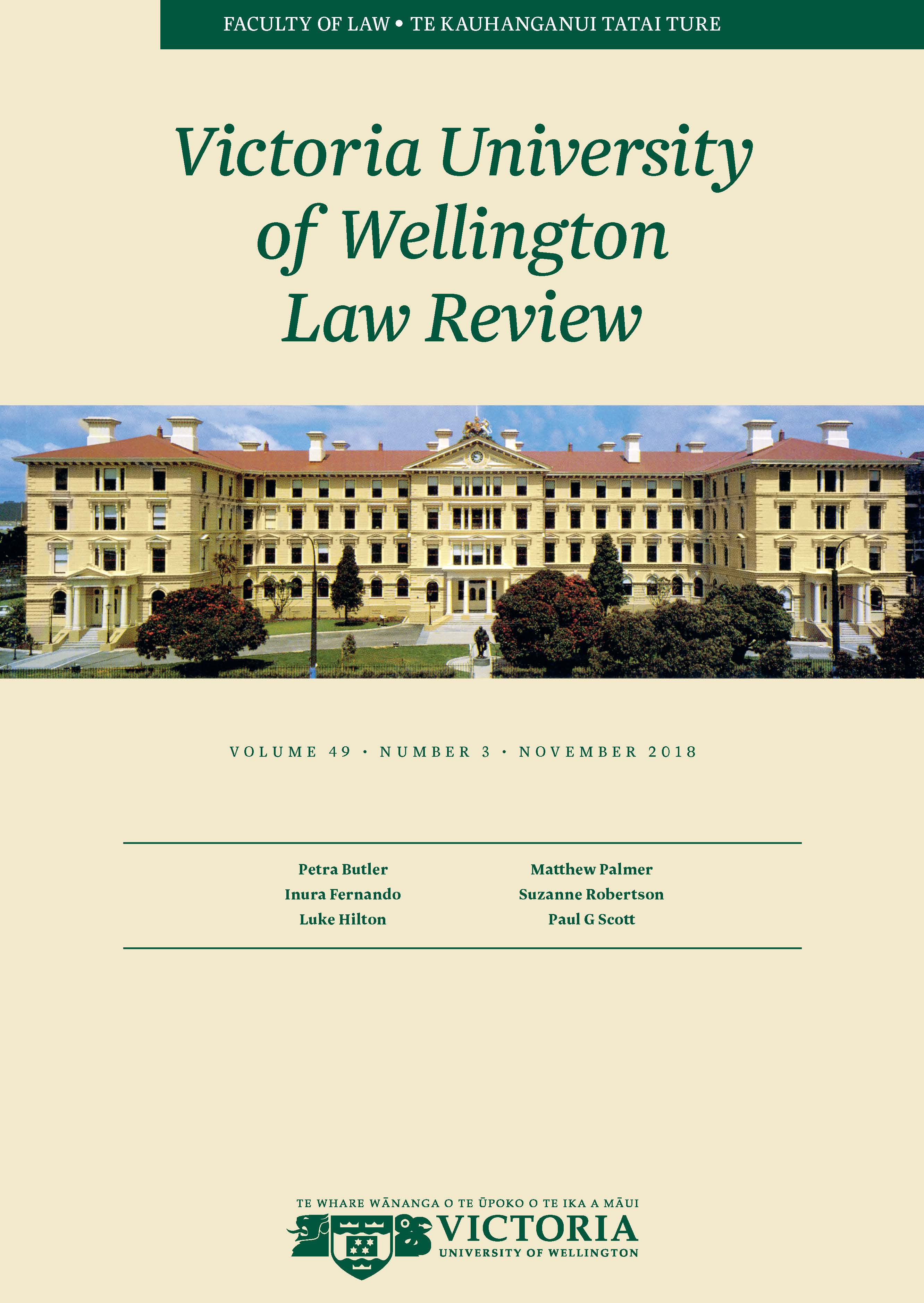Unilateral Refusals to Supply and the Essential Facilities Doctrine under New Zealand's Competition Law
DOI:
https://doi.org/10.26686/vuwlr.v49i3.5329Abstract
Refusals to supply are one of the types of behaviour that may constitute an illegal act of monopolisation under competition law. As part of United States refusal to supply law the courts developed the essential facilities doctrine. This requires the owner of a facility which is essential to rivals to provide access to that facility. Courts, in particular the United States Supreme Court, have cast doubt on the doctrine and cut back on liability for unilateral refusals to supply. Conversely New Zealand (and Australian) courts have increased liability for refusals to supply. One case, Commerce Commission v Bay of Plenty Electricity Ltd suggested New Zealand has its own essential facilities doctrine. This article discusses and analyses refusals to supply both legally and economically. It compares United States and Australasian law and shows how New Zealand law is tougher on refusals to supply. It argues that New Zealand has its own version of the essential facilities doctrine – albeit for different reasons than the Bay of Plenty Electricity Court suggested. It shows that sound reasons justify this stance.
Downloads
Downloads
Published
How to Cite
Issue
Section
License
Authors retain copyright in their work published in the Victoria University of Wellington Law Review.


